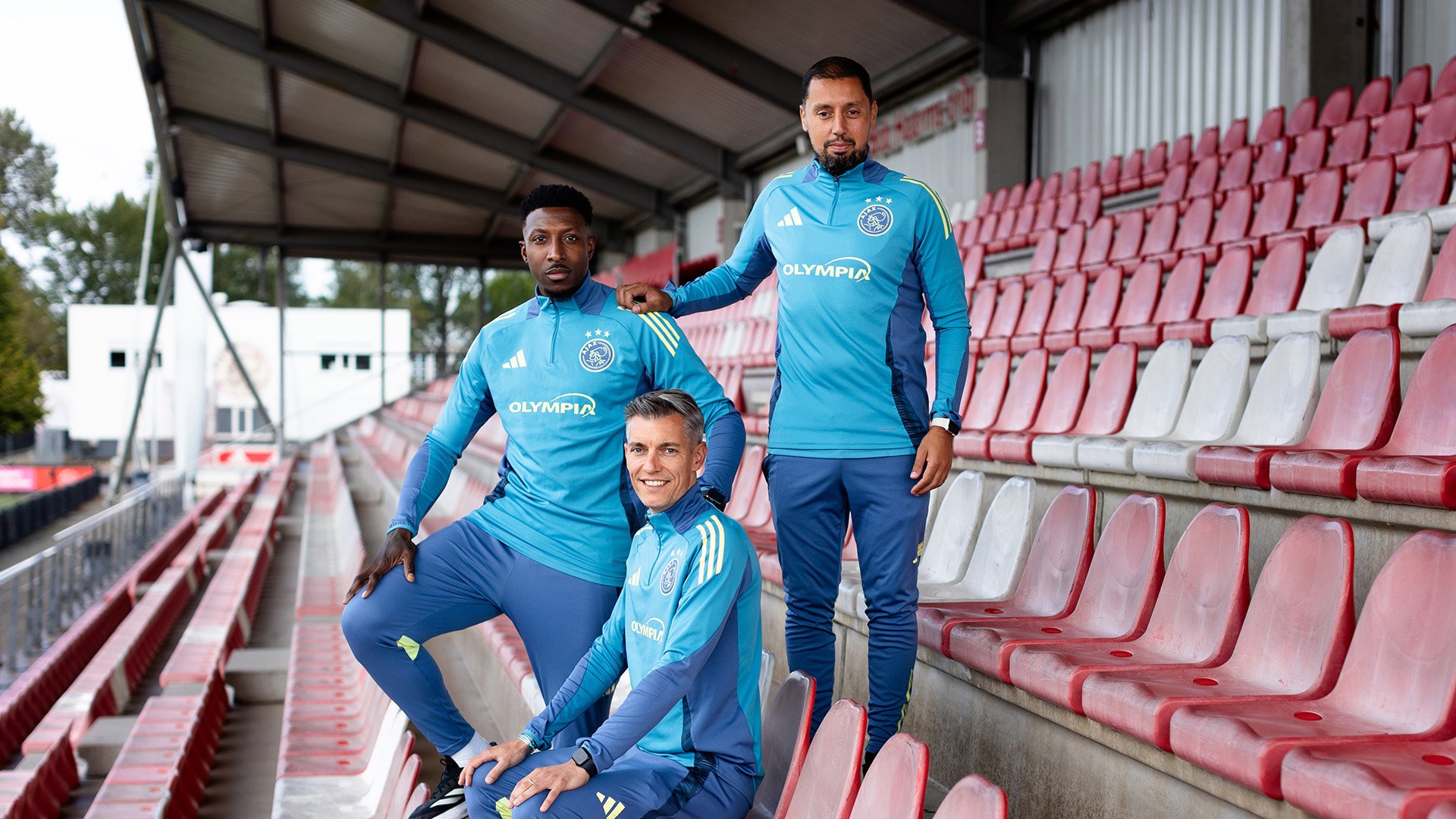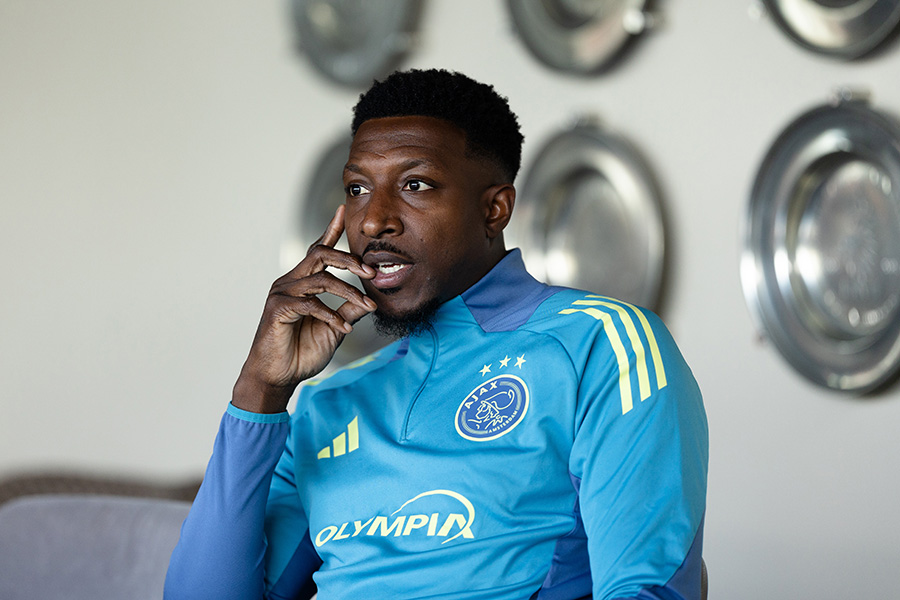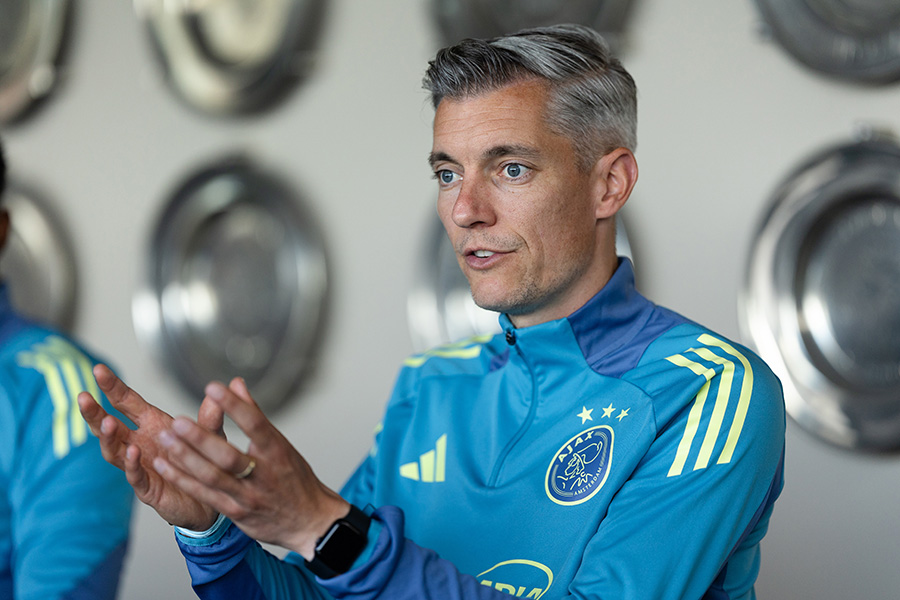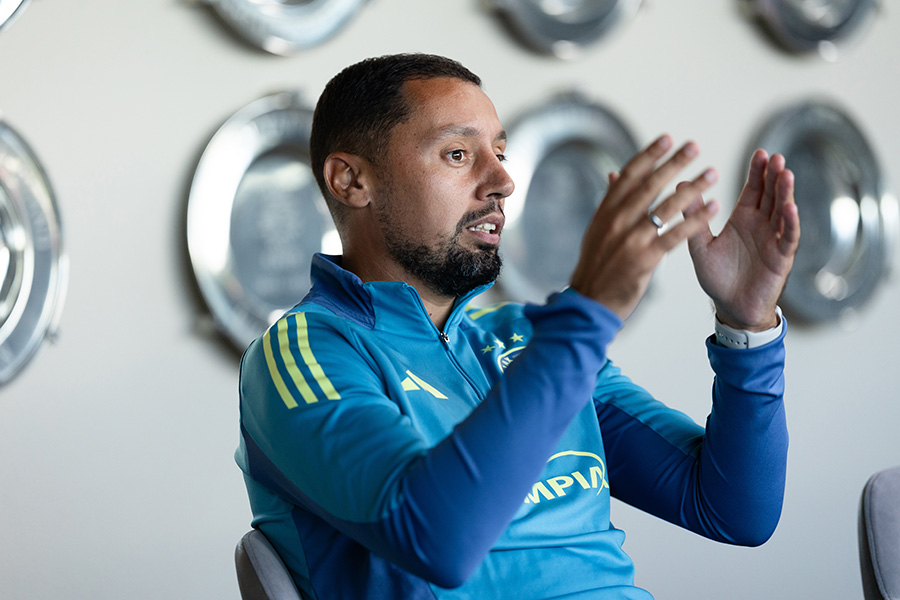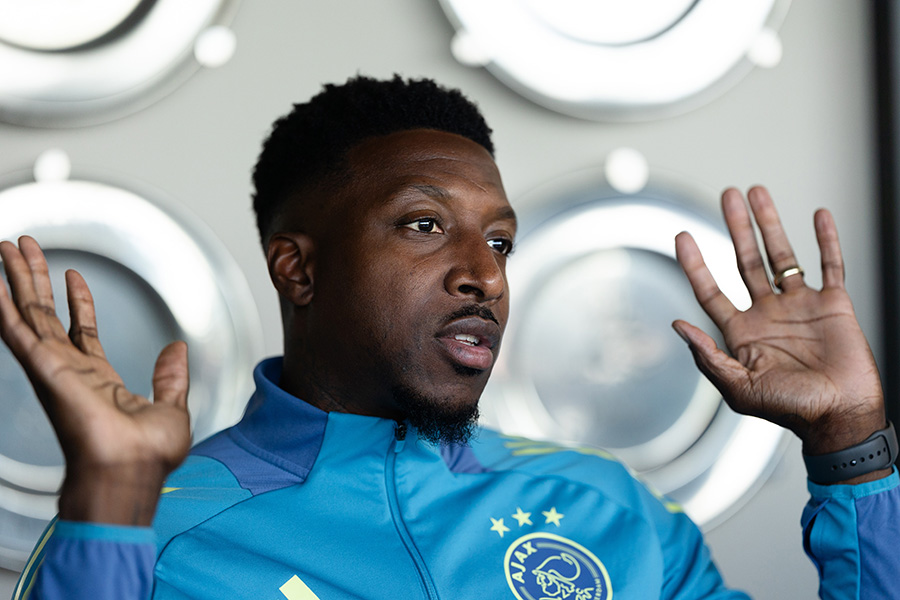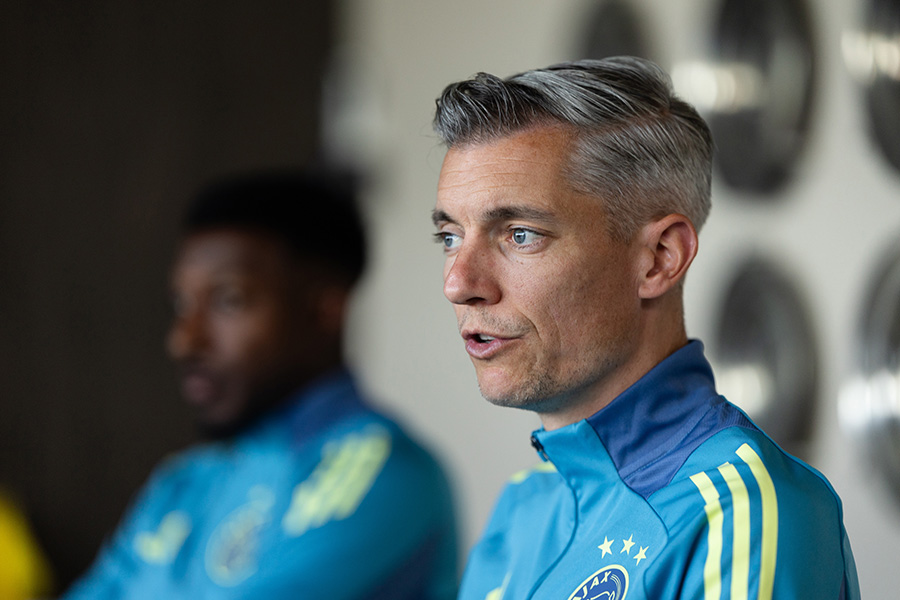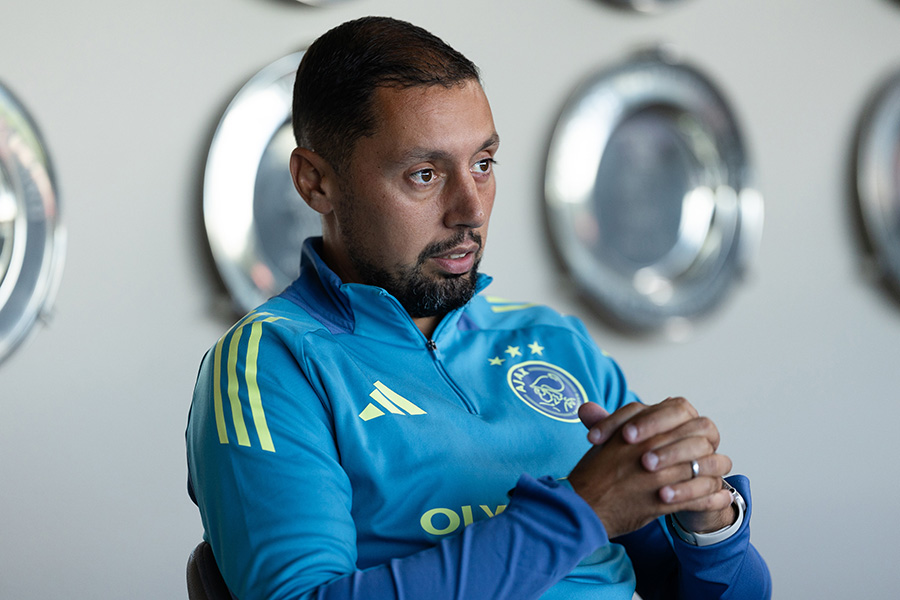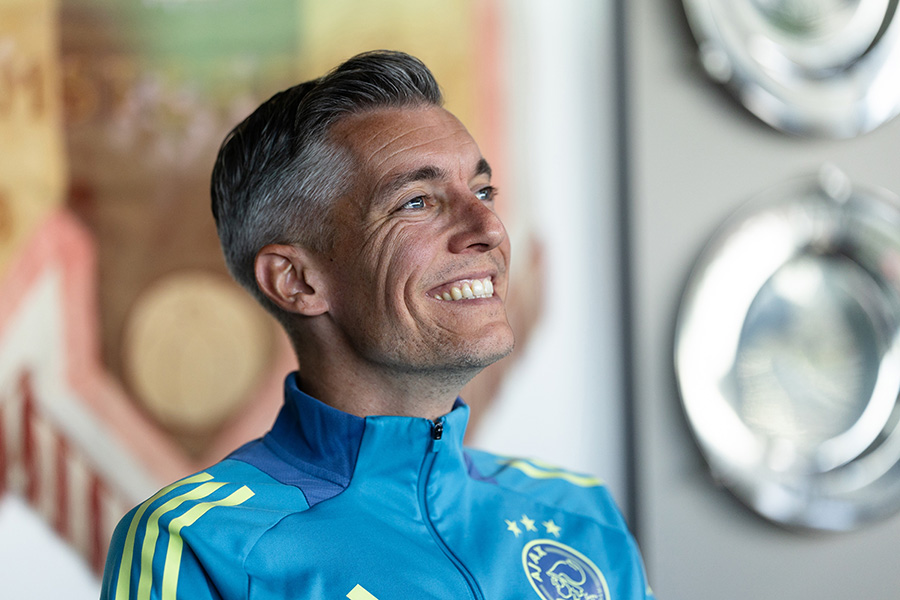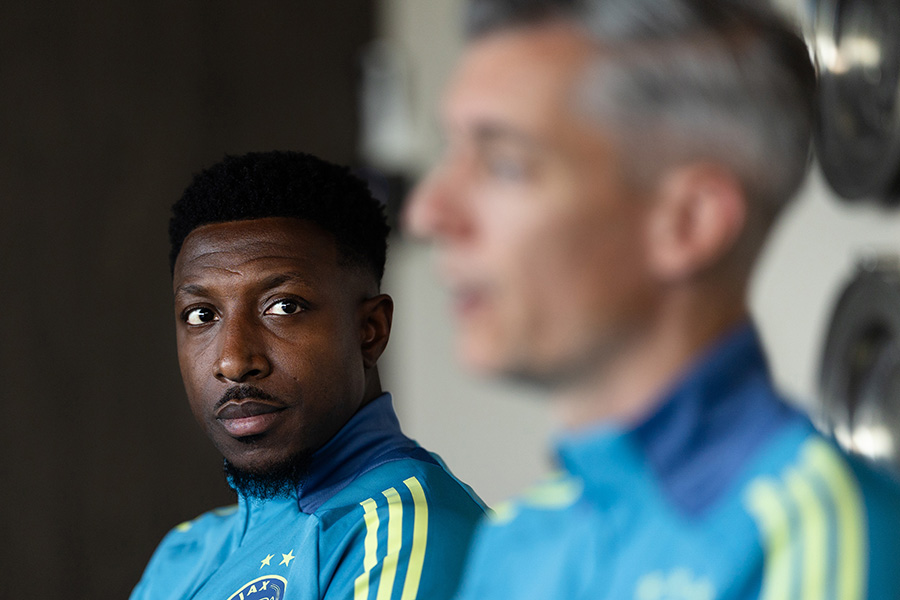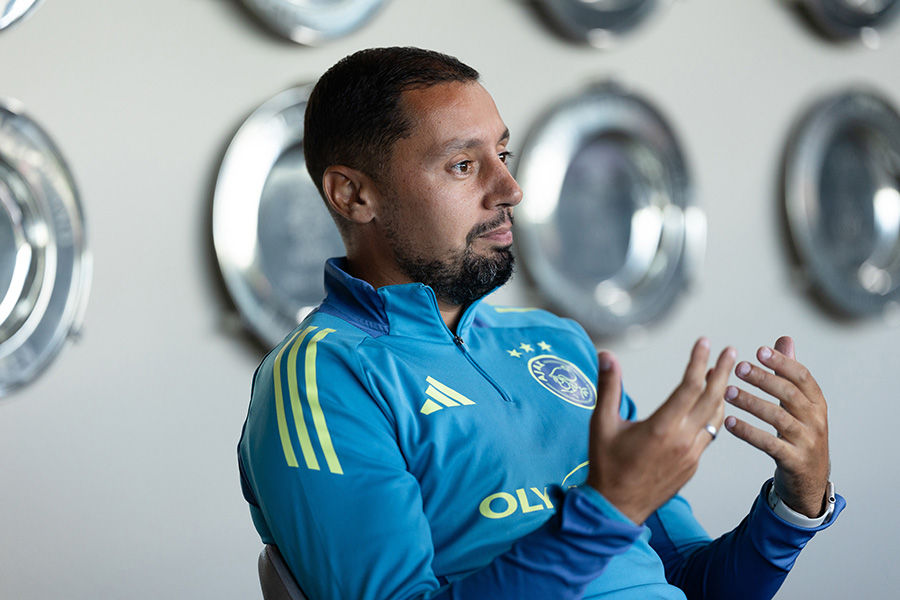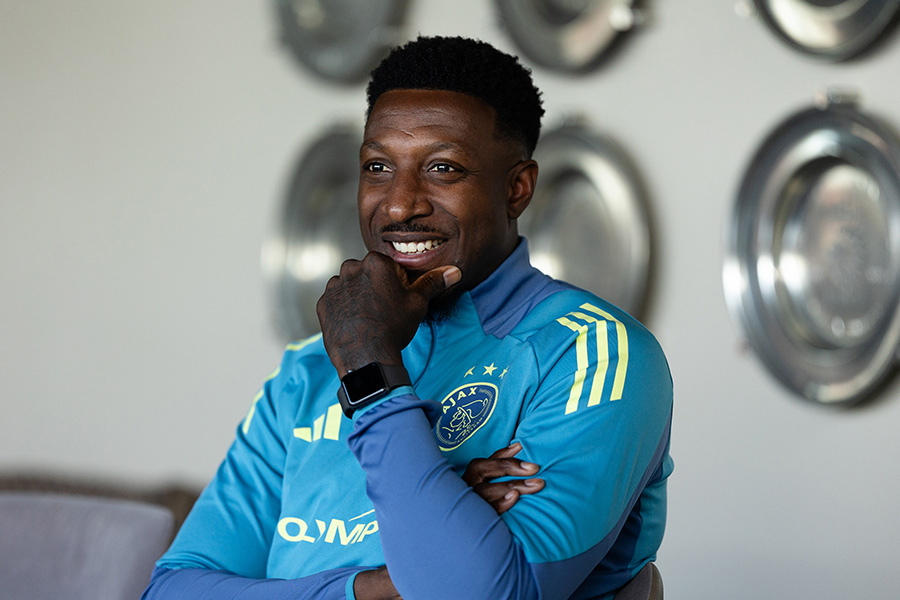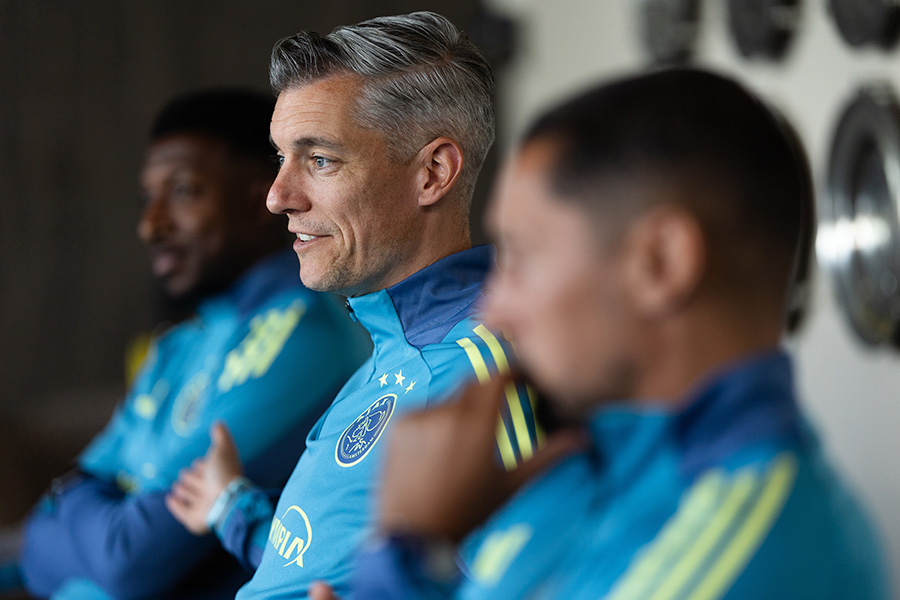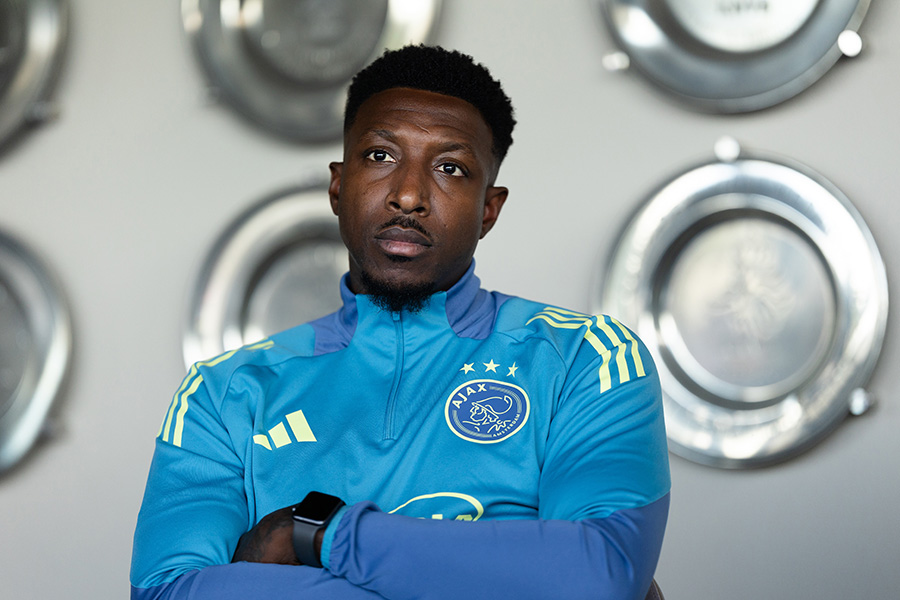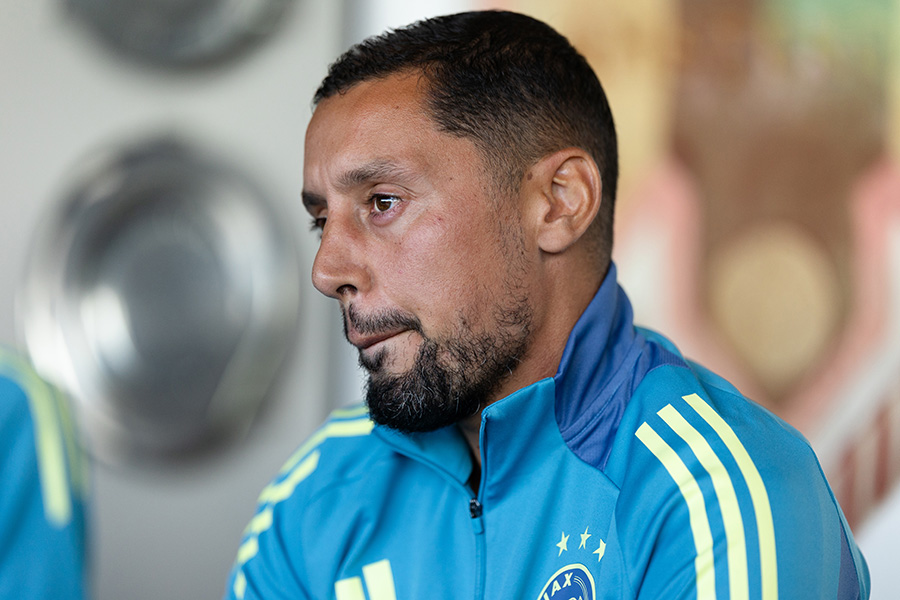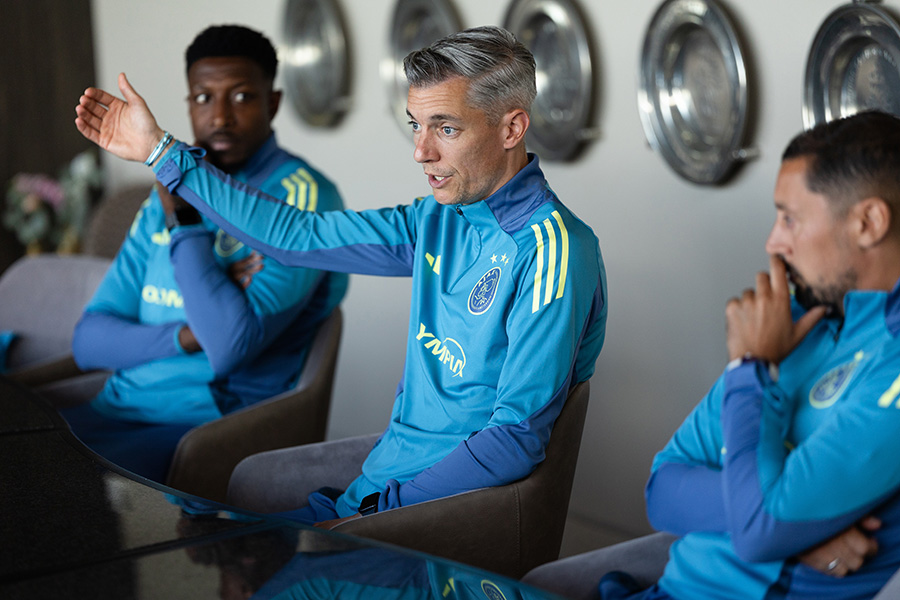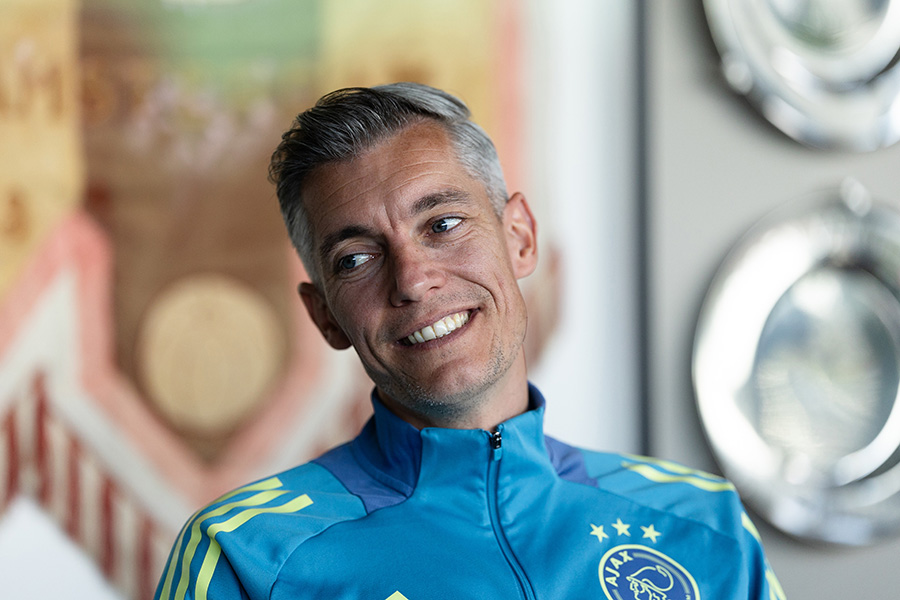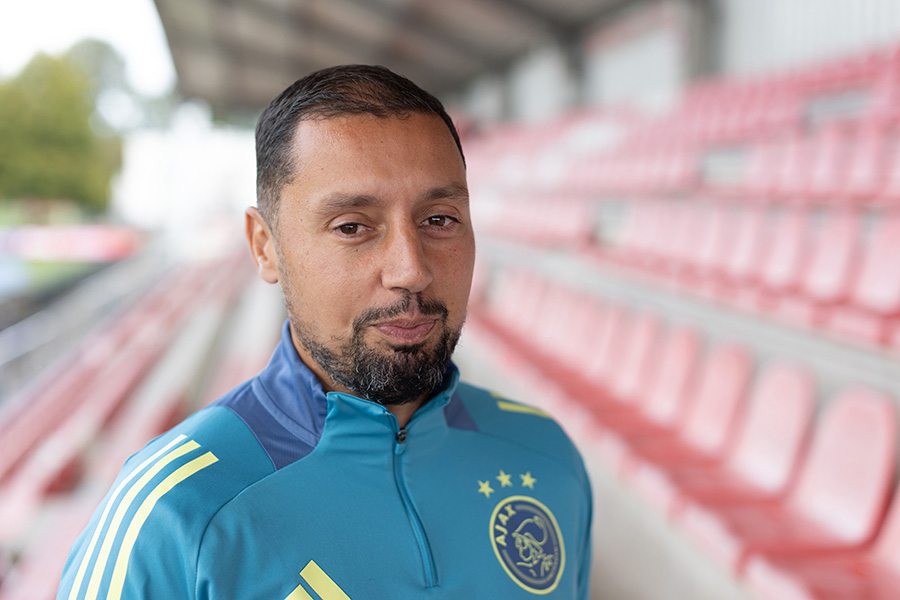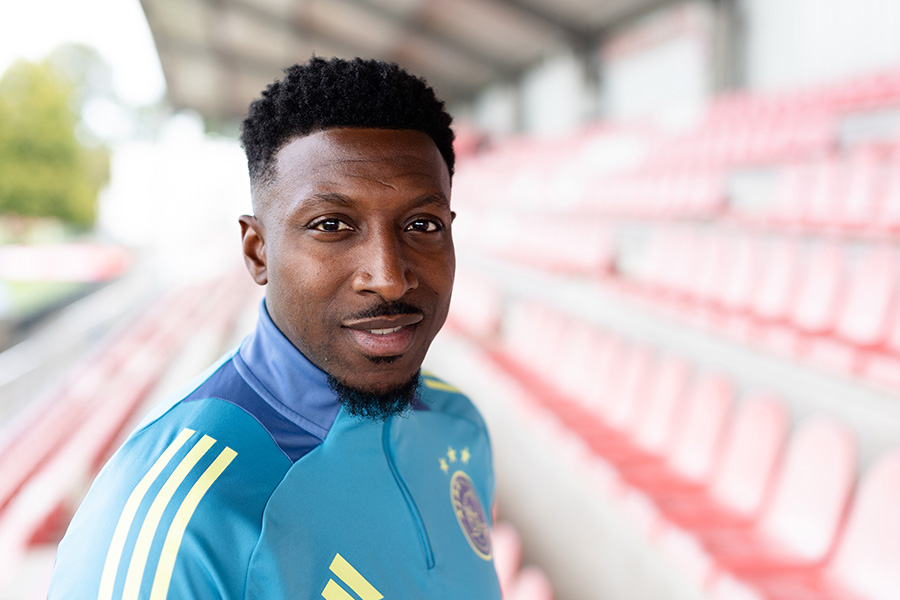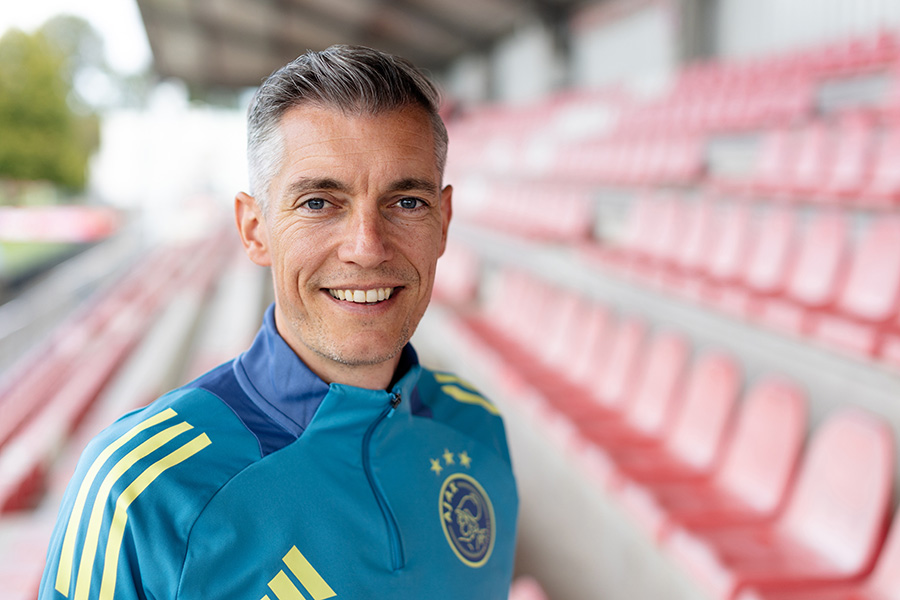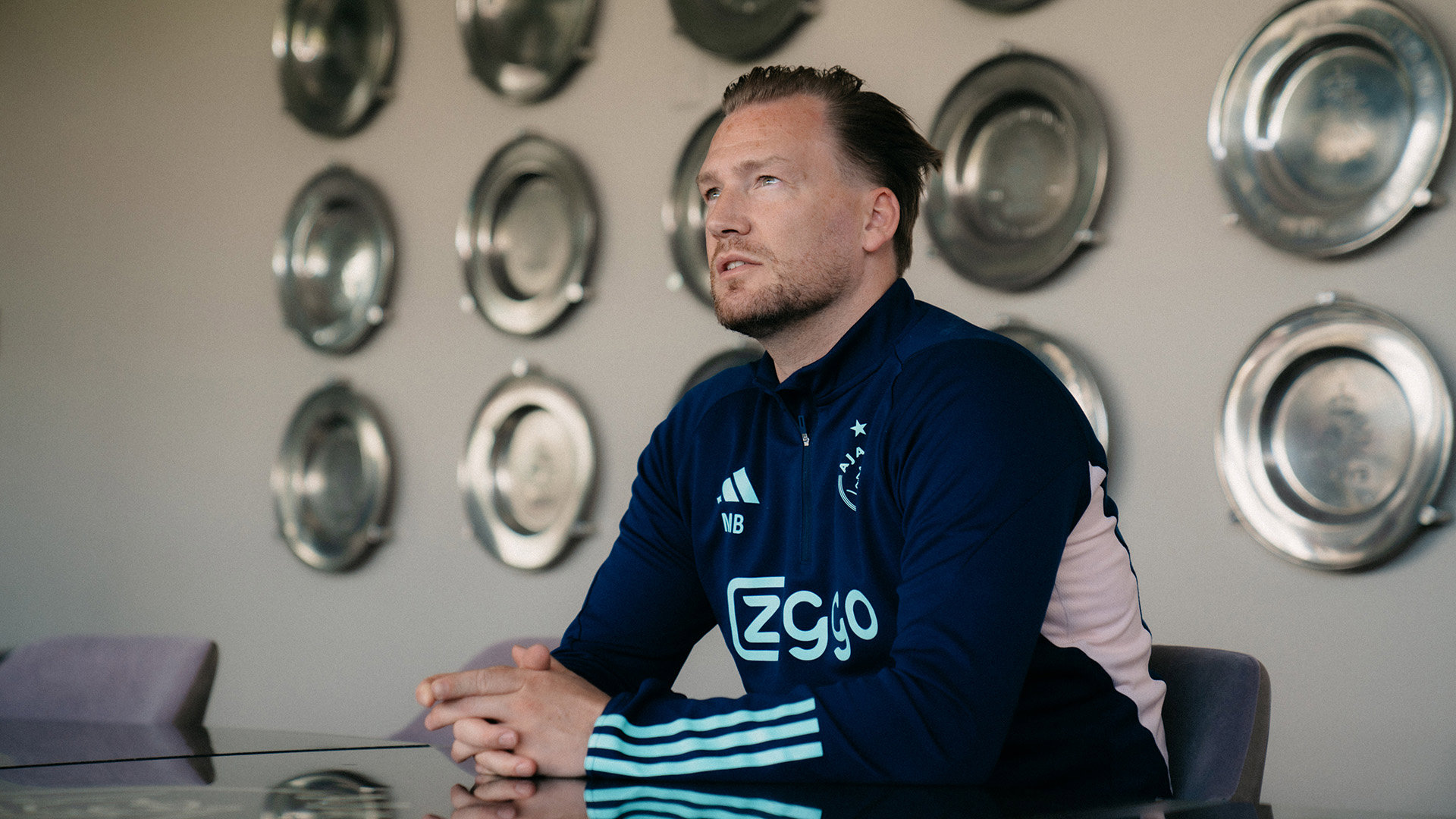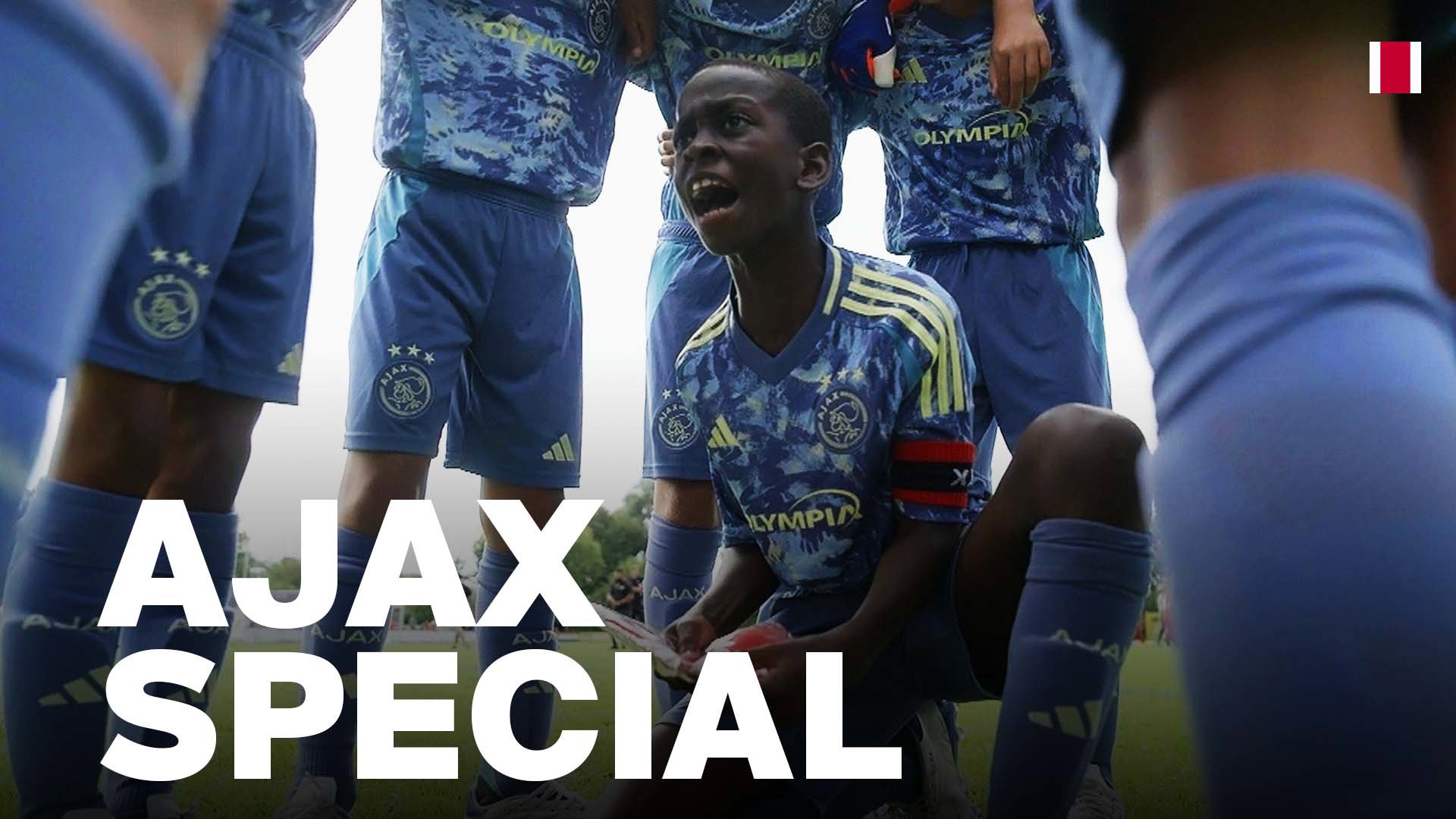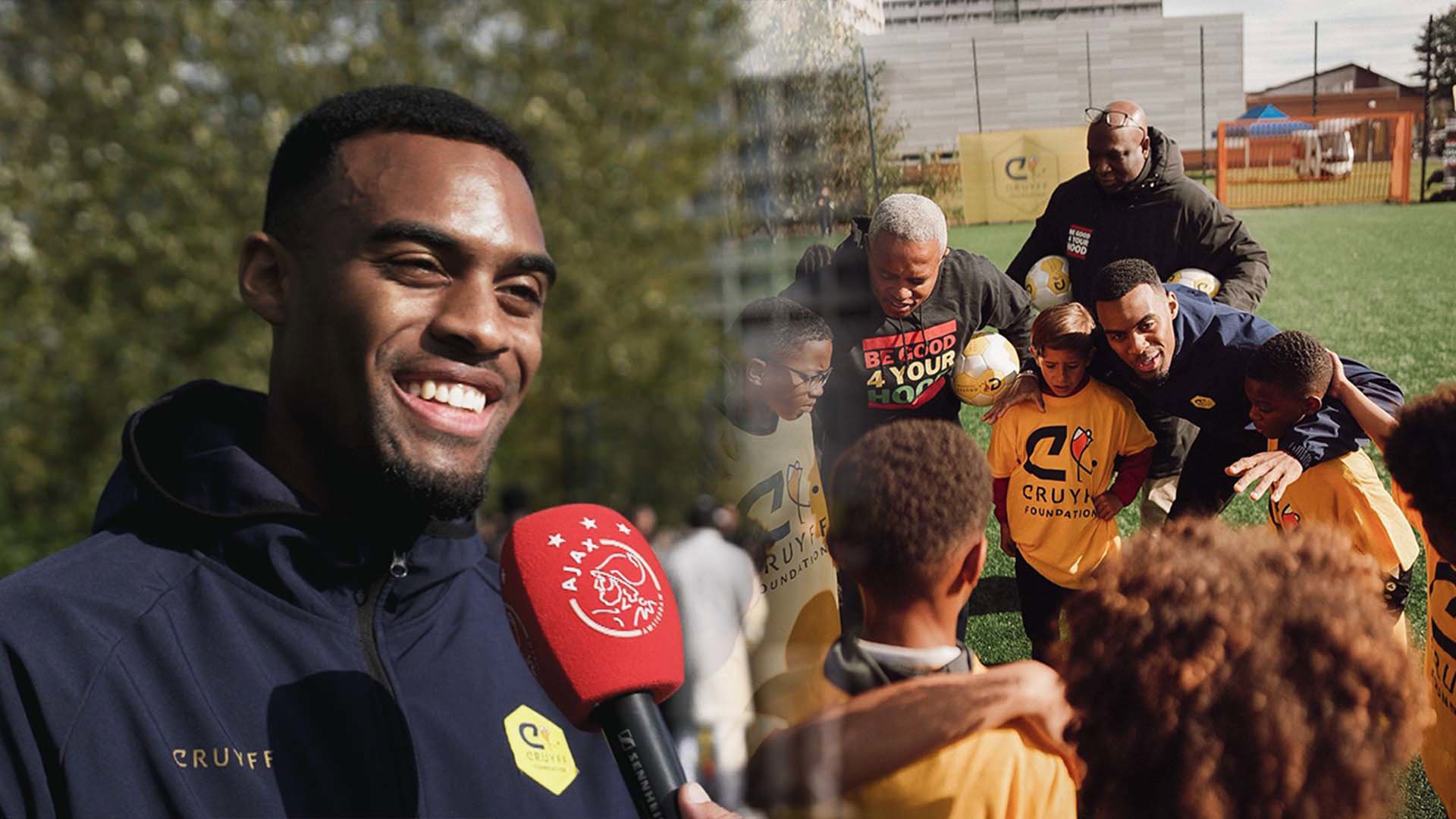We meet at the place where it has all been happening for the trio since this summer: Sportcomplex De Toekomst. Aissati played in Amsterdam during two periods (2008 to 2010 and 2011 to 2012) and has been an assistant coach for the U15 since this season. Donald went through the entire Ajax youth system and eventually left Ajax in 2011 after debuting in 2007. The former player is now the head coach of Ajax U10. Weijs was previously a youth coach in Amsterdam from 2013 to 2017. Since this season, Weijs has been the head coach of Ajax U19.
How have the first months been, and why did you return to Ajax?
Aissati: "Very good. I started as an intern last year with the U14s. This season, I sense new energy from everyone, both in the club and among the coaches. Coaching is something completely different, but I find it very interesting. I learn every day, and I'm open to it. And where better to do this than at Ajax? The players don’t remember me from my Ajax days, but it's about them, not me. I want to pass on my own experiences. Now, I'm with the U15, and I find it a really fun age group. They challenge me."
Weijs: "I've always had an unstoppable ambition to get into professional football until I finally made it there and experienced both the fun and definitely the less fun aspects. I noticed that many distractions were pulling me away from where my heart truly lies. And that doesn't mean I'd never work in professional football again. On the contrary, being in the right club with the right people could work perfectly fine. But I also cherish the charm of youth football. I can focus entirely on it again now, which is wonderful."
Donald: "I have a long history here, and it's special to walk around here now as a coach. I came in as a nine-year-old boy, and now I'm coaching that same age group. Two years ago, I got my first taste of coaching and immediately became enthusiastic. I breathe football, and for those who know me, this step wasn't a surprise. I love working here as a coach with the game. With the younger ones, we, as the lower youth coaches, have to lay the foundation. And I still have a lot to learn, trust me. This was the right step for me, and everything is falling into place."
What's the difference between your first period at Ajax and now?
Weijs: "There is still a lot of focus on the individual, but now it's more about performing as a team. There's a greater emphasis on combining individual qualities with those of teammates. That's fundamentally different compared to seven years ago. I find the dynamics within a team very interesting. Making choices, managing people, and preparing them for the final step into professional football give me a lot of satisfaction."
"Players undergo cognitive tests, personality tests, and interviews. Everything is there, from nutrition to sleep. All data for each player is recorded for every training session. This has changed enormously over the past years, and I think it’s a good development."
Donald: "I was toughened up on the streets, and I miss that in today's society. I want to teach the boys what I learned back when I started here. We don’t just train the players to become footballers because professional football is a tough world. What we do is also partly raising them. It's about finding a balance and mixing it properly. Another important element is bringing the players to technical perfection."
Aissati: "There's so much coming at them. I'm the same age as Mitchell, and I can relate to what he's saying. Bringing what you have to deliver every day is tough, but that’s what I try to teach them. The bond between coach and player and between player and player must be based on trust. Then you start talking and get to know the person behind the player. When players feel safe and comfortable, that’s when they play their best."
Weijs: "I think we're at an important point. There's a person behind every footballer, and we need to develop them, too, maybe even more importantly. We need to train players based on the Ajax culture combined with the high-performance culture."
What do you notice about the new vision within the club?
Aissati: "Everyone's role is clear, and everyone speaks the same language. The collective goal is clear: to make players better and send them to Johan Cruijff ArenA. That’s what it’s about. This season, I'd also love to sit down with Willem to exchange ideas or observe a training session—he’s so experienced."
Weijs: "I notice that there are many people who think outside the box and bring something new. There's energy, and you feel it. People are putting in the work to elevate the club. We have to offer the players the best football pathway. That was very clear when I began discussing a potential return with Ajax. What's the vision, and where does the club want to go? We need the best plan, and everything else has to support that. Players need to feel that this is the best place to develop."
"The academy is the lifeline, and it starts with us. I think there's only positivity within the club. That's due to the clear framework set for the youth academy and the appointment of the right people. The combination of former players with didactically trained coaches should lead to a very high level of training. Sooner or later, you’ll see cross-pollination—it’s inevitable."
Donald: "I think it's great that the youth also play on different surfaces here. It really helps them. The attention a player receives now is great. They need to feel safe to develop. Consistency is important in that. Good is good; not good is not good. But feeling safe is crucial. Players need to feel they're allowed to make mistakes."
What does the youth academy look like now, in your opinion?
Donald: "We need to return to the old-school saying: 'We are Ajax, we are the best.' Not so much in words but on the field. Players and opponents should feel that Ajax is better. That swagger, that's what the academy stands for. And how? That’s up to us. If everyone is focused on the same thing, I see a bright future for all of us."
Aissati: "Entertaining the public, recognisable football, and you should see that every Ajax youth team exudes joy. 'That’s Ajax playing,' which should be visible from afar. It shouldn't matter who the coaches are. Even if you're 3-0 up, you want to make it 4-0. The Ajax DNA must always be there."
Weijs: "Ajax will always produce good players. But now it's obvious what we all want: good footballers and good people who can adapt to society and interact well with teammates, coaches, parents, and employees here. It's a challenge, but we’re not avoiding it."
When will your time as a coach be considered successful?
Aissati: "If every player develops, especially in the middle age groups. I find that very important. And for myself: learning, learning, learning."
Donald: "There won't be a moment when I think: now I'm satisfied. I want to see good progress and my players to feel safe and comfortable within our team. And for us to create great moments together. That’s what gives me fulfilment."
Weijs: "If you can inspire people, you're already well on your way. That creates positive energy. It's not necessarily measurable, but that feeling surpasses everything else to me. Of course, the aim should be to win titles, but that's not the most important thing. What's the best plan for a player and their development towards becoming an Ajax player? Ultimately, it's about them playing in the Johan Cruijff ArenA and achieving success there, then making a great transfer and making a difference at their next UEFA Champions League level club."
